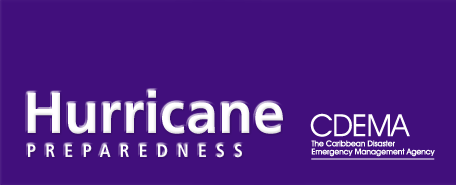|

- Make sure that you listen for official information to ensure that the all-clear announcement has been given. Do not leave your home until you hear the all-clear announcement.
- Do not go outside bare-footed or in slippers
- Keep phone lines free for important calls
- Get medical attention for persons injured
- Help your family, neighbours and community
- Assist in search and rescue, and community response efforts
- Clear roads and clean up debris from surrounding areas
- Begin temporary repairs
- Report damage to utilities
- Avoid Sightseeing
- Watch out for secondary hazards, fire, flooding, etc
- Do a damage assessment and co-operate with Assessors
- Visitors should inform the relevant authorities of their location as soon as possible
Recovering from any disaster is usually a step by step process. For many, the greatest concerns are regaining safety, comfort and physical wellbeing. However, after experiencing a devastating event, recovering from mental or emotional trauma is also very important. Don’t be afraid to get advice if you remain stressed long after situations have returned to normal. Feel free to contact professional counsellors, faith based organizations or community programmes for support.
Signs of Disaster Related Stress
- Trouble sleeping
- Difficulty maintaining balance in their lives
- Low threshold of frustration
- Depression, sadness. feelings of hopelessness, mood-swings
- Increased use of drugs/alcohol
- Short attention span and/or difficulty concentrating
- Poor work performance
- Headaches/stomach problems
- Tunnel vision/muffled hearing
- Disorientation or confusion
- Increased guilt and self-doubt
- Fear of crowds, strangers, or being alone
- Reluctance to leave home.
|



























